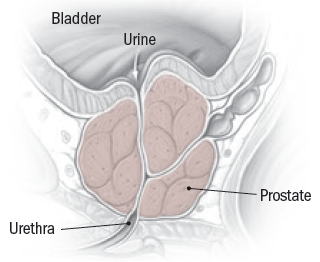
Trying to lose weight? Be careful not to lose muscle

Is your skin problem actually an autoimmune condition?

People with diabetes face higher risk of hearing loss

Antibiotic-free fixes for recurrent UTIs

Musculoskeletal syndrome of menopause: When menopause makes you ache all over

When can older women stop getting mammograms?

To lose weight, especially harmful belly fat, combine diet and exercise

Can men hold off on treating recurring prostate cancer?

The 7 types of rest and why we need them all

What are the early warning signs of cervical cancer?
Men's Health Archive
Articles
Want to cool down? 14 ideas to try
Climate change has made summers hotter, and the struggle to stay cool has led to more cases of heat-related illness. Don't wait until you're overheated to figure out how to cool down; use these ideas to get you started.
What causes a man's breasts to grow?
Breast enlargement can be common in men. The two primary reasons are excess weight and gynecomastia, a condition that causes the breast's glandular tissues to grow.
Artificial intelligence in prostate cancer
Artificial intelligence (A.I.) has made significant strides in helping doctors better diagnose and treat prostate cancer. A.I. uses mainly software programs that apply complex computational algorithms to improve precision and efficiency in diagnosis, treatment, and management. Three areas where A.I. will likely have the most impact are examining prostate biopsies with greater insight, finding hard-to-see tumors on MRI images, and determining which men undergoing radiation may also benefit from androgen deprivation therapy.
Increasing energy levels for sex
Many factors can diminish men's energy levels, which can lower their libido and sexual stamina. The most common factors are naturally declining muscle mass, less production of the energy-carrying molecules adenosine triphosphate, low testosterone levels, and poor sleep quality. Addressing these issues through diet, exercise, medical therapy, and practicing good sleep hygiene can help improve men's energy levels for sex and daily life.
Low testosterone levels linked to shorter life span
In a 2024 study of men ages 49 to 76, low levels of testosterone were associated with higher rates of death from any cause and specifically deaths from cardiovascular causes, such as heart attack, cardiac arrest, heart failure, or stroke.
New urine test may help identify high-grade prostate cancer
A 2024 study found that a urine test that looks for cancer genes may help identify the most serious cases of prostate cancer among men with high levels of prostate-specific antigen (PSA). This could help many men with high PSA levels avoid biopsies.

Trying to lose weight? Be careful not to lose muscle

Is your skin problem actually an autoimmune condition?

People with diabetes face higher risk of hearing loss

Antibiotic-free fixes for recurrent UTIs

Musculoskeletal syndrome of menopause: When menopause makes you ache all over

When can older women stop getting mammograms?

To lose weight, especially harmful belly fat, combine diet and exercise

Can men hold off on treating recurring prostate cancer?

The 7 types of rest and why we need them all

What are the early warning signs of cervical cancer?
Free Healthbeat Signup
Get the latest in health news delivered to your inbox!
Sign Up











